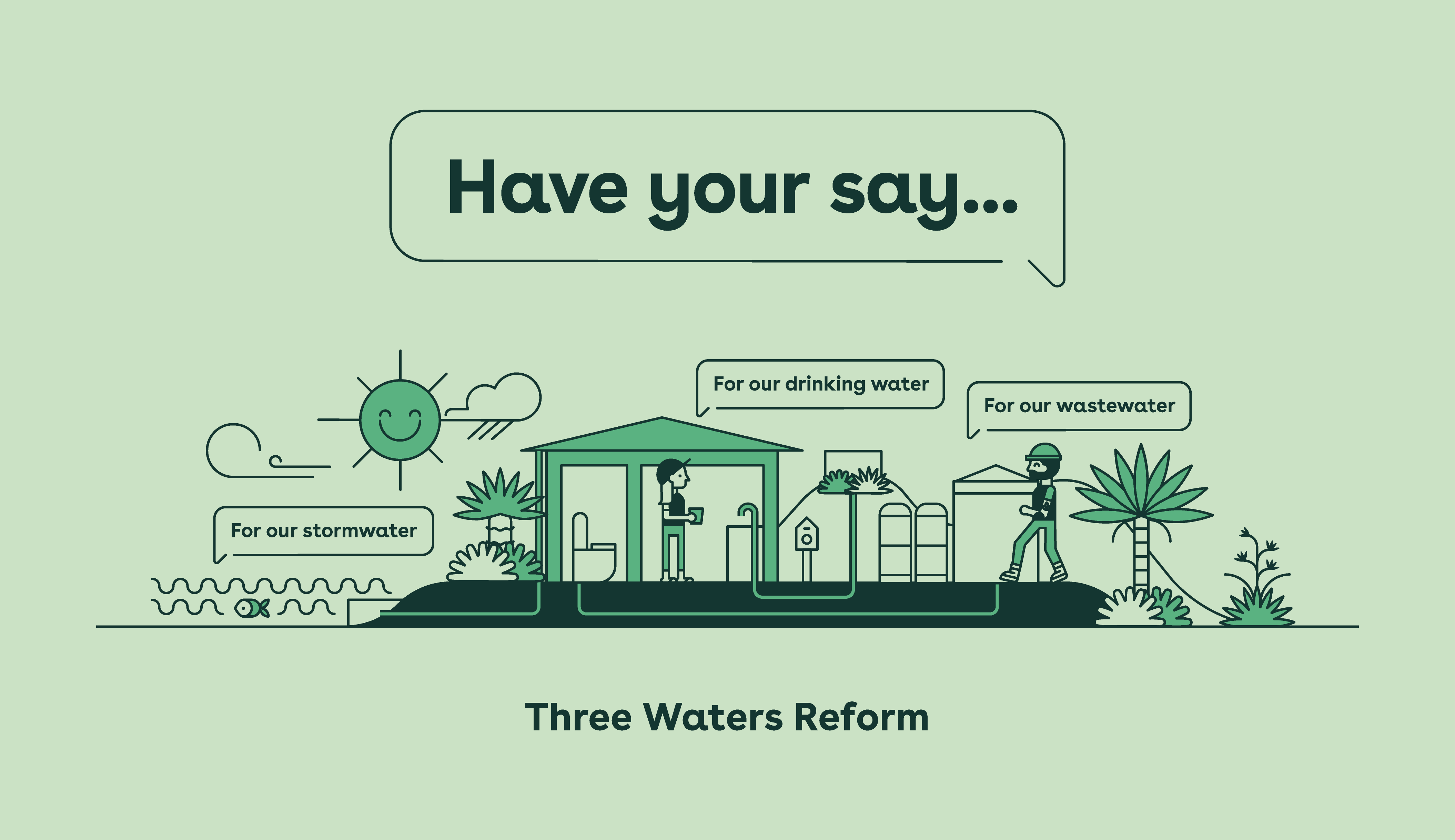Share your ideas on the Three Waters Reform governance structure
Consultation has concluded
Feedback is now closed. Thank you for your contributions.
On Wednesday 27 October Government announced it will make its Three Waters Reform mandatory for all councils, rejecting the option to make it voluntary for councils. The reform will see the management of drinking water, wastewater and stormwater transferred from 67 councils to four public-owned entities from 1 July 2024.
While Government's mandate decision may be a bitter pill to swallow for some, the focus must move to providing feedback on critical aspects we can help influence.
So, we're keen to hear people’s ideas on what "good" looks like from a governance and accountability perspective when the reform kicks in from 2024. This means thinking about:
- who makes what decisions?
- who should be responsible for running the entity?
- who should be responsible for setting the direction of the entity?
- how can local communities influence the direction?
- how should the interests of mana whenua be reflected?
Councils nationwide have raised a number of concerns about the proposed representation, governance and accountability arrangements for the new entities.
To address these concerns Local Government Minister Nanaia Mahuta has established a working group of council and iwi representatives tasked with recommending strengthened governance and accountability arrangements for the Three Waters Reform Programme. The other critical issues for councils, including rural water schemes and integration with the planning system, will also be worked on with the sector.
It is important that together we shift the conversation to the outstanding issues the Government's working group will be discussing and providing recommendation to Government on.
The Terms of Reference for the working group on representation, governance and accountability of the new water entities can be read here.
One of the difficulties in designing a good governance and accountability structure is that achieving some of the desired outcomes means that other good outcomes cannot be achieved. For example, if councils have a high degree of control over the assets in the entity it may limit the ability of the entity to borrow to fund infrastructure.
There are three ways you can join in on the conversation and give feedback. We will collate this information and send it to Government's working group for consideration. The working group will report back to Government in March 2022, which ensures there is time for the advice and recommendations to inform the final entity design.
Post your ideas on our digital pin board below.
Rank potential Governance and Accountability outcomes in order that are most important to you (1 being most important and 9 being least important).
Register your interest to share your ideas on one of two virtual sessions on Thursday 9 December from 7pm - 8pm and Friday 10 December from 12pm - 1pm. To register your interest follow the sign up prompts below before Friday 3 December. Both zoom sessions will have Council staff and Councillors listening to your ideas.
Feedback on the digital pinboard conversation and priority ranking closes Friday 3 December.
We suggest having a read through supporting documents such as:
- the Governance and accountability framework the Government proposed in June 2021
- Council's feedback to the Minister of Local Government on Thursday 30 September before the decision was made to make it mandatory
- Summarised feedback received from all the Councils (68 pages)
- Central Government’s FAQs
- Local Government NZ's list of alternative models for Three Waters




